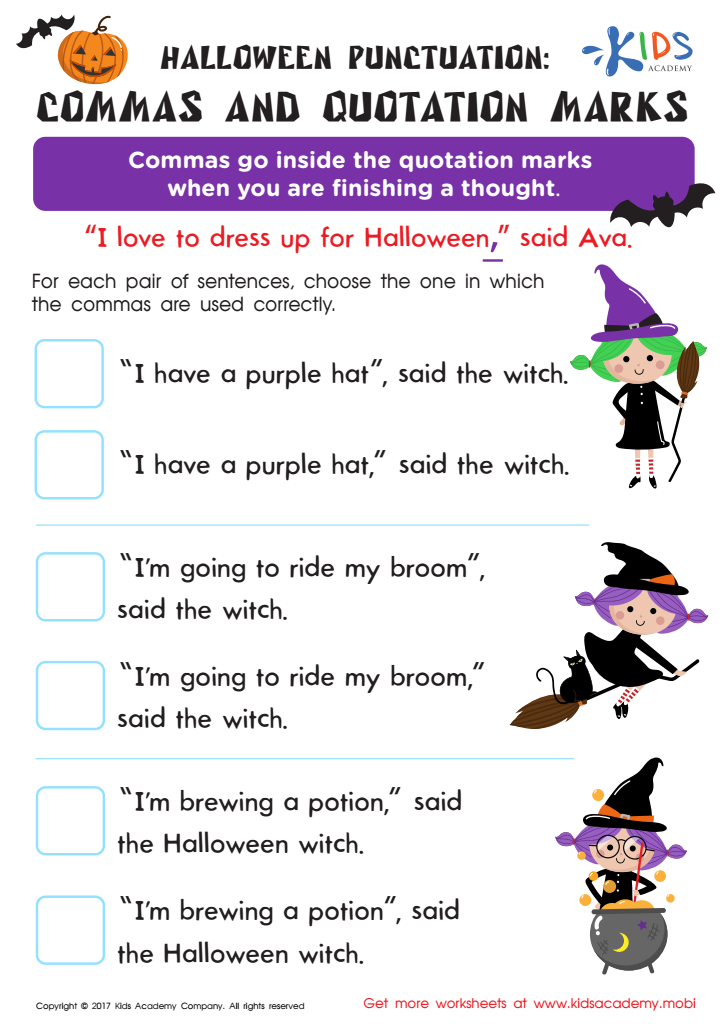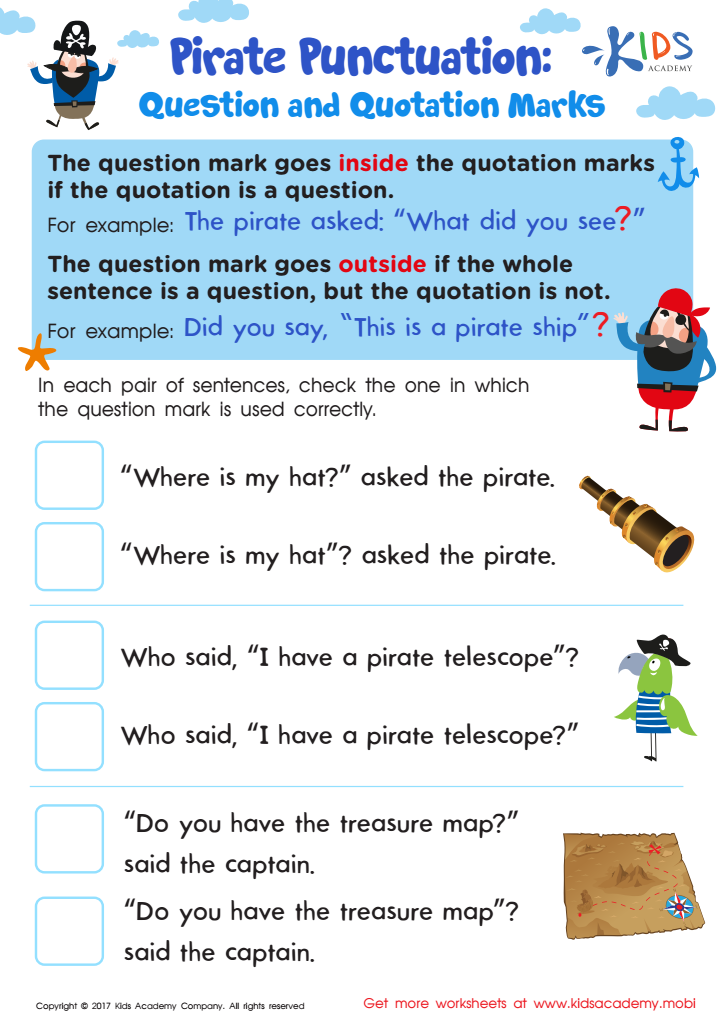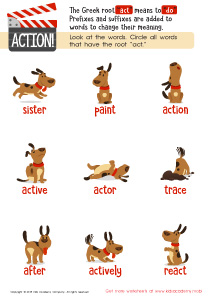L.3.2.C Conventions of Standard English worksheets With Answers for Grade 3
2 filtered results
Difficulty Level
Grade
Age
-
From - To
Subject
Activity
Standards
Favorites
With answer key
Interactive


Quotation Marks Worksheet
This funny Halloween-themed worksheet has kids practice punctuation by identifying where the comma goes - inside or outside quotation marks. Delight your child with the witch's thoughts and hone their writing conventions!
Quotation Marks Worksheet
Worksheet


Question and Quotation Marks Worksheet
Adults often struggle to remember the rules for placement of question marks with quotation marks. This practice worksheet can help build the writing conventions needed.
Question and Quotation Marks Worksheet
Worksheet
 Assign to the classroom
Assign to the classroom












